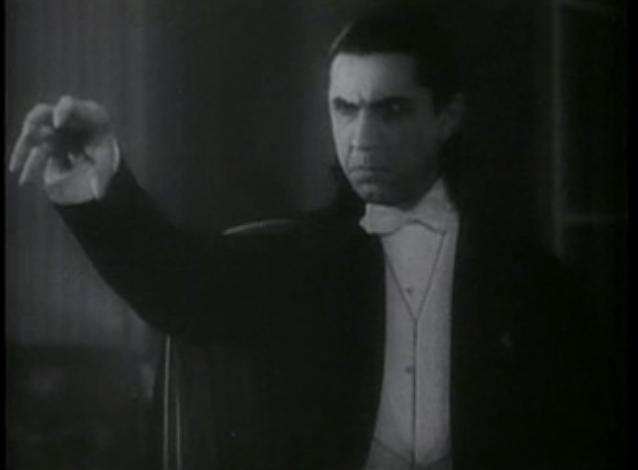It's easy to think that writers are indestructible. They show a stoic determination through rounds of edits, changes in direction, and final tweaks. They keep a stiff upper lip, but underneath that professional demeanor lies an artist's heart. And like anyone of an artistic temperament, writers have a list of grievances that invoke frustrated screams. To keep your writer from losing it, avoid these 11 no-nos.
1. Refer to them as a content producer

Who cares what you call them — they’re still getting a paycheck, right?
Stop and think about who you’re dealing with. Your content person is obsessed with words — that’s why they write! Words matter and when you refer to them as a “content producer,” they’re likely cringing. We’re more than just producers of content — we’re crafters of words, we give them emotional weight and meaning. We use language to connect with people no matter who we’re writing for.
Chickens produce eggs, factories produce plastic bottles, but writers create.
2. Let everybody be a writer!

Everyone writes. We do it every day. We write things like emails, grocery lists, and passive-aggressive notes to our roommates, reminding them not to eat our food. Again.
How can stringing together a bunch of words be considered a talent?
Look. I’M. DOING IT. RIGHT. NOW.
If people want a crack at writing some copy — why not? Let’s see what Bill in marketing, or Janet in accounting, or Ted, who always seems to be in the breakroom (what is his job title?), can come up with. And make sure to send it all as separate attachments to your copywriter. They’ll be so happy to have all that raw material written by different people to get them started.
No. I’m lying. Don’t do that.
A copywriter’s job isn’t to be an alchemist. They can’t just take a bunch of writing, mix it all together, and produce magical content. Sure — everyone is a writer in the sense that everyone writes, but not everyone is a creative writer. Giving your writers a bunch of different content written with varying degrees of skill and in different voices creates extra work and potentially hurt feelings for those who don’t understand the editing process.
But do give your content person an outline, style guides, notes, and other marketing materials that have been published. They should know what’s important to emphasize and what’s worked in the past. Let them be the voice for your brand. It’s what they’re experts at doing.
And by all means, leave Ted out of it.
3. Encourage the cliché

Almost every profession has that thing that ruins their work. Just as a chef takes it personally when a customer pours ketchup all over their food, writers can't stand it when their creativity is doused with cliché sauce.
I did some work for a client who wanted me to write a tagline that was a variation of "Not your father's Oldsmobile." Which is as old and stale of a premise as the interior of a traveling salesman's briefcase.
Sure, I probably rolled my eyes at this suggestion, but then I showed him why this is such an overdone line. I sent him links and other examples of its overuse as marketing copy. I wrote him a list of alternatives better suited to the brand. — and he understood.
So don’t ask your copywriter to write things you’ve heard a million times before. And don’t ask for ketchup when your prime rib arrives. (Because ew.)
4.Hold back assets

A shared drive, with every important asset handy, brings joy to any copywriter. It's like a jewel thief showing up and having all those lasery things turned off. Or a prosecuting attorney with a defendant who’s representing himself. It makes the job that much easier.
Writing content shouldn’t be a scavenger hunt. Telling a copywriter to “look at our website and our competitors,” or “just make something up!” sends up red flags.
Not being able to get started on a project is hard when you don’t have all of the files you need. Make sure your copywriter has what they need to jump right in.
5. Give wishy-washy feedback

Communication is key. Don't nod and say everything’s great if it isn’t. Especially in the beginning stages of a project.
This is the most important time to guide your copywriter versus giving them no direction and a list of changes and edits at the tail end of a project. Steering the course and getting things done gets easier when changes come in incrementally, as opposed to a drastic turn of the wheel.
And writers love external validation. Why else would they choose a profession where the goal is to impress you with their wordskillz? Along with constructive criticism, let them know what they’re doing right so they can keep doing it.



















The missing guide to the freelance designer's life is here
Learn everything you need to know about making the leap to freelancing, from how to find clients to how to price your services.
6. Micromanage minuscule edits

As writers, we're used to edits. In fact, we welcome them. Well, when they help improve our work, anyway. So one round of edits — cool. Two rounds — totally understandable. Three — it's always good to fine-tune content. Four — this is when we start to get a bit grumpy. And last-minute edits that don't affect anything will make us exercise our powers of creative profanity.
We're good with changing words to make sure we capture your brand's personality and voice. But after multiple rounds, edits should only be considered if they affect the overall piece of writing.
Getting focused on single words can get annoying, especially if it's already been changed multiple times. A thesaurus and a red pen can slay your copywriter's morale. If it doesn't serve the greater good of the content, ease up a bit. Both you and your copywriter will be happier.
And find some other tiny way to channel control issues — building model ships in glass bottles, for instance.
7. Provide a creative brief that’s ... too brief

Creative briefs can be great when they outline a project’s goals and other important information. Or, they can be full of such fluff that a child's crayon sketch would provide more meaning.
A creative brief shouldn't be a vague assemblage of words reads like refrigerator magnet poetry. It's not our jobs as writers to derive meaning from a creative brief where not a lot of thought was invested.
For example, I was once given a creative brief that said the tone needed to be “formal and fun.” Uh, come again? These two concepts seem to be in direct opposition to each other. Formal and fun: like a butler who’s had a couple glasses of wine? Wait — that may have been the perfect tone! Oh well ...
And make sure your creative brief has specifics. Telling us your audience is men and women between the ages of 18 and 80 doesn’t give us a clear target. The more information a writer has, the easier it is to craft content that satisfies the project’s goals and audience in the language and tone they’ll understand.
8. Drain all creativity

When you take everything that’s interesting and engaging out of a piece of writing, you’re like a vampire. But instead of depleting your copywriter of blood, you’re removing their creativity — their life force.
So instead of robbing their souls, leaving them an empty shell of a human — trust them. Writers love putting words together in a creative way. If it’s on brand and appropriate, don’t take it away. No one wants to read huge passages of boring text. They want something living!
So don’t be a Dracula: let their work see the light of day.
9. Ask for hip, fun, and edgy!

These three terms are the "make it pop" of copywriting.
You need to know what these phrases mean to you and your company — they should be defined for anyone writing or creating any sort of marketing materials. What does hip, fun and edgy mean to your brand? And how have you used these styles successfully in the past? Your copywriter needs specifics to focus their tone and make sure they’re meeting your expectations.
Creating content that matters to your end users is the key to your website’s success.
-Me
For example, MailChimp has a fun voice. They explain their brand voice in their style guide as "fun but not silly," "informal but not sloppy," and "weird but not inappropriate." Their style guide gives the specifics of what makes their brand’s voice fun.
And hip? Tell me what that even is! Are all those restaurants with names like “The Pig and the Spoon,” “The Calderon and the Cleaver,” or “The Thistle and Spork” — hip? Is kale hip? What about handlebar mustaches — are kids still sporting those? Those are hip too, right?
I guess I’ll know hip when I see it.
And while we’re on the subject of generalities ...
10. “I’ll know it when I see it.”

Telling a writer, "I’ll know it when I see it" is sure to make their head roll off their shoulders (because an eye roll wouldn’t be enough). It’s a vague statement, devoid of meaning.
Don’t ask your copywriter to write something “punchy” only to shoot down each draft because it’s not quite punchy enough (for real my head just fell off my shoulders). And if you must reference another company’s marketing campaign, be specific about what you like. If you’re not seeing “it” after multiple rounds of copy from your steadfast writer — maybe the problem is you, dear reader.
During an expedition to prove the existence of Bigfoot is the only time “I’ll know it when I see it” is appropriate. And even then — chances are it’s some guy tromping around in an ill-fitting costume with an awkward gait.
11. Ask for labor on an old version of the project

Everyone needs to be working on the most current version of a project. They need to know about changes in strategy, structure, and anything else that could affect their work. How many writers have submitted work only to hear, "Sorry — that's the old version! Let me send over the new one!”
And then you wait — and it still doesn't land in your inbox.
Finally, you send a friendly reminder that you’re still waiting on those docs to start your work. You receive an apology and an attachment. And it's the same old version you've been working from. It’s. Still. Wrong.
If you need to scream — please, be my guest.
Keep your copywriter happy and keep them around
Though we may have artistic temperaments, copywriters are loyal. Treat us right and give us enough creative freedom to feel like we’re more than typing automatons and we’ll stick around. We want to write — and we want our writing to be appreciated.
And most importantly, we want our writing to help you succeed.
































